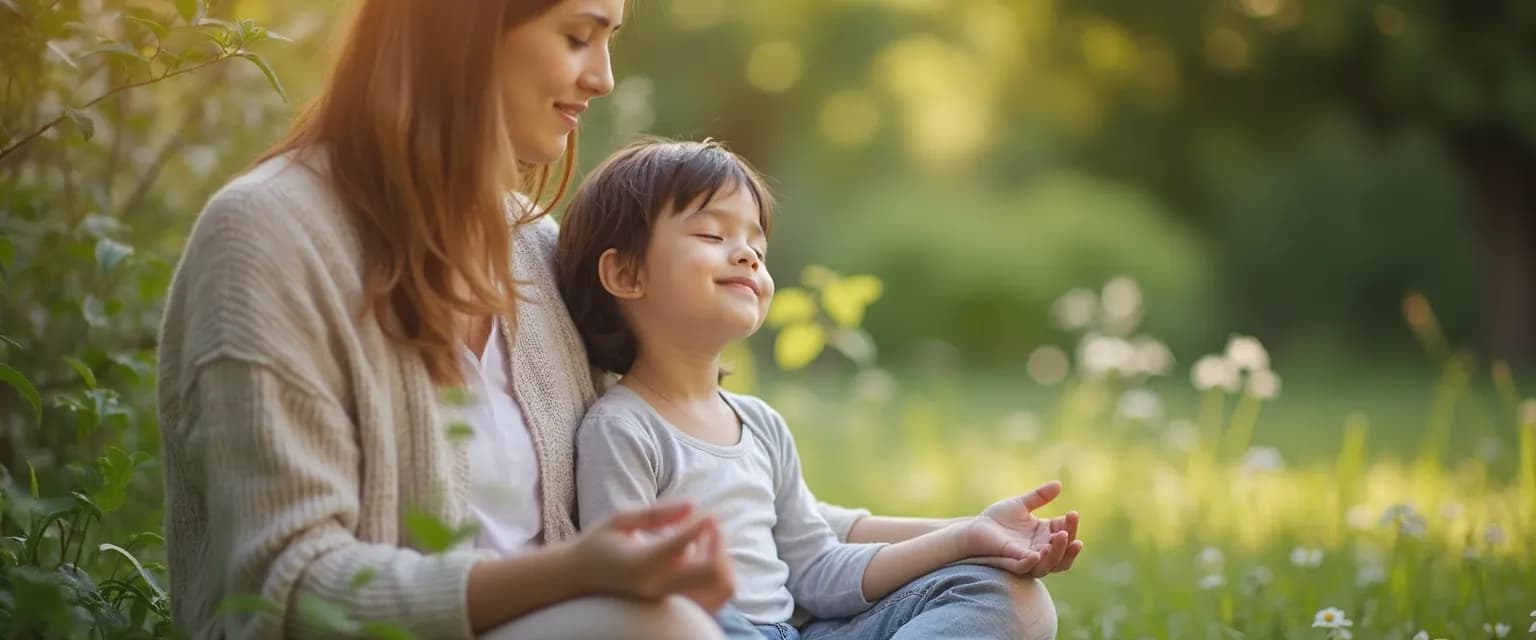Mindfulness and ADHD: Practical Techniques for Parents to Support Children
Parenting a child with ADHD comes with unique challenges that can leave both you and your child feeling overwhelmed. Exploring the connection between mindfulness and ADHD offers a promising approach to managing symptoms and improving quality of life. Mindfulness—the practice of paying attention to the present moment with curiosity and acceptance—provides powerful tools for children struggling with attention, impulsivity, and emotional regulation. Recent research shows that consistent mindfulness and ADHD interventions can significantly reduce core symptoms while building essential self-regulation skills.
The science behind mindfulness and ADHD is compelling. Studies show that regular mindfulness practice actually changes brain structure in areas responsible for attention and executive function—precisely the areas that children with ADHD find challenging. By implementing mindfulness techniques at home, parents create opportunities for children to strengthen these neural pathways, leading to improved focus, better emotional regulation, and reduced impulsivity.
What makes mindfulness particularly valuable for ADHD management is its accessibility—no special equipment required, just your attention and a few minutes each day. The key is finding age-appropriate practices that engage your child rather than frustrate them.
Simple Mindfulness and ADHD Exercises for Daily Practice
Introducing mindfulness and ADHD practices doesn't have to be complicated. Start with short, playful exercises that match your child's age and interests. For younger children (ages 5-8), try "Balloon Breathing"—have them lie down, place a small stuffed animal on their belly, and watch it rise and fall as they breathe deeply. This simple exercise helps children connect with their breath while providing visual feedback.
For older children (ages 9-12), the "5-4-3-2-1 Senses Countdown" works wonders. Guide them to notice five things they can see, four things they can touch, three things they can hear, two things they can smell, and one thing they can taste. This anxiety management technique grounds children in the present moment—particularly helpful during homework time or before bedtime.
Body scan exercises are another effective mindfulness and ADHD strategy. Have your child lie down comfortably and guide their attention from toes to head, noticing sensations without judgment. This practice builds body awareness and helps children recognize physical signs of frustration or excitement before emotions escalate.
Integrating Mindfulness into Daily Routines
- Morning routine: Practice three mindful breaths together before leaving for school
- Mealtime: Take a moment to notice colors, smells, and textures before eating
- Transition times: Use a one-minute breathing break between activities
- Bedtime: Practice a short body scan to calm the nervous system
The beauty of these exercises is their flexibility—they can be shortened or extended based on your child's attention span and interest level. Remember that consistency matters more than duration when building mindfulness and ADHD management skills.
Supporting Your Child's Mindfulness and ADHD Journey
Creating a mindful home environment significantly enhances the effectiveness of mindfulness and ADHD practices. Start by designating a quiet space where your child can practice without distractions—even a corner with a cushion can become a special "mindfulness spot." Keep sessions positive and never use mindfulness as punishment; instead, present it as a special tool for feeling better.
As parents, modeling mindfulness speaks louder than instructions. When you practice alongside your child, you not only strengthen your relationship but also demonstrate that mindfulness is valuable for everyone. When you feel frustrated, narrate your own process: "I'm feeling upset, so I'm going to take three deep breaths to help my body calm down." This stress reduction modeling helps children internalize self-regulation strategies.
Celebrate small wins along the way—maybe your child remembered to take deep breaths during a frustrating homework session or noticed they were getting angry before having an outburst. These moments of awareness represent significant progress in mindfulness and ADHD management.
As your child grows, their mindfulness practice can evolve too. Older children might benefit from guided meditations specifically designed for ADHD or apps that make mindfulness engaging. The foundation you're building now—present-moment awareness, non-judgmental attention, and emotional regulation—will serve them well throughout life.
Remember that mindfulness and ADHD support is a journey, not a destination. Some days will go smoothly; others won't. What matters is creating consistent opportunities to practice these skills together, building a toolbox of techniques your child can draw from whenever needed. With patience and persistence, mindfulness becomes not just an intervention for ADHD symptoms, but a pathway to greater self-awareness, emotional balance, and family connection.




